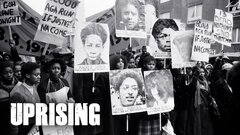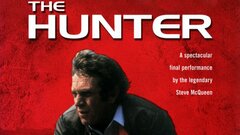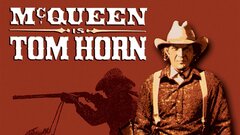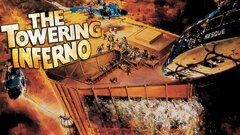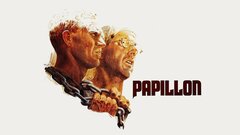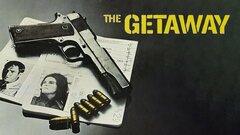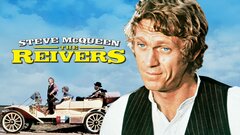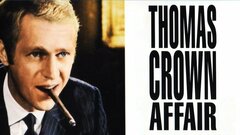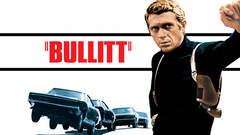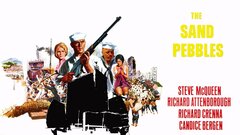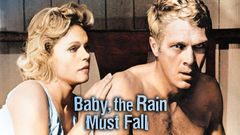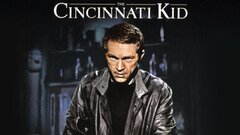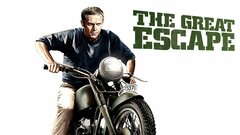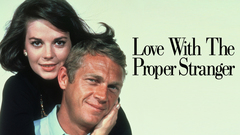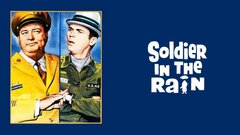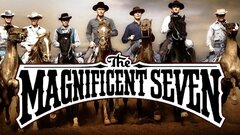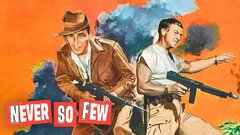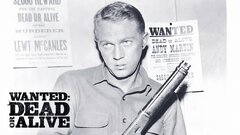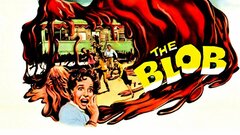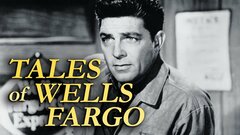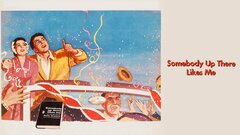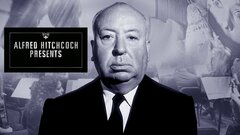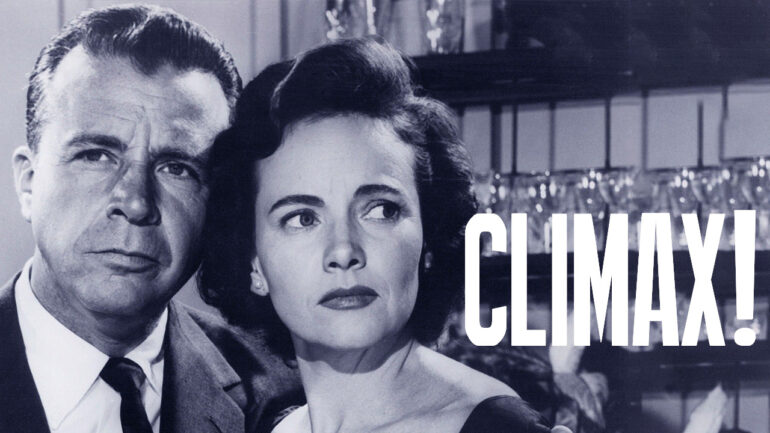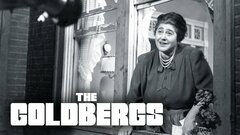A brooding performer with a rebellious streak and a proclivity for speed, actor Steve McQueen forever changed the definition of the Hollywood leading man with roles as quiet, but tough protagonists who sought their own methods outside the bounds of authority. Dubbed "The King of Cool," McQueen ushered in a new breed of antiheroes who commanded the begrudging respect - along with large salaries - of studio producers and directors, while attracting millions of moviegoer fans around the world.
Though he made a name for himself as the star of the popular Western series "Wanted: Dead or Alive" (CBS, 1958-1961), McQueen nearly stole the rug from under star Yul Brynner in the acclaimed movie "The Magnificent Seven" (1960). He next portrayed a brash, but wily escape artist in "The Great Escape" (1963) before giving acclaimed performances in "The Cincinnati Kid" (1965) and "The Sand Pebbles" (1966), the latter of which earned him his only Academy Award nomination.
Following a small break from the screen, McQueen entered into his most memorable phase with "The Thomas Crown Affair" (1968) and "Bullitt" (1968), which featured what many considered to be the greatest car chase ever seen on film. After the underperforming race movie "Le Mans" (1971), he had one of the biggest hits of the year with "The Getaway" (1972) and delivered a solid turn as an escaped prisoner in "Papillion" (1973). Following the epic disaster movie, "The Towering Inferno" (1974), McQueen began a tragic battle with lung cancer. Though his life and career were cut short at age 50, McQueen remained one of the most iconic and beloved film stars of the latter half of the 20th century.
Born on March 24, 1930 in Beech Grove, IN, McQueen's father, Terrence, was a stunt pilot for a flying circus who abandoned his six-month-old son and alcoholic wife, Julian. Unable to handle raising a small child, McQueen's mother left him in the care of her parents in Slater, MO, where he grew up on a farm and experienced something of a normal childhood, which he later recalled with fondness. But when he was eight years old, McQueen was taken back by his mother and her new husband, an unhappy transition that resulted in him running with a street gang and committing petty crimes. His wayward behavior forced his mother to send him back to Slater, only to reclaim him a few years later. Now 12 years old, he went to live in Los Angeles with Julian and her third husband, whom he later described as a "son of a bitch," because he routinely beat McQueen and his mother. Once again, he fell in with the wrong crowd and resumed his life of petty crime, which included getting picked up by police for stealing hubcaps. This led to his stepfather severely beating McQueen and throwing him down the stairs.
Because he seemed to be a hopeless juvenile delinquent, McQueen was sent by his mother to the California Junior Boys Republic, a reform school in Chino Hills, CA, at the behest of his abusive stepfather. Though initially resistant to being in a boys home, which led to another round of beatings, McQueen eventually wised up and matured. The experience must have made an impression on the young man, because as an actor he developed an unusual reputation of requesting free items in bulk like razors, clothes and other products from movie studios. It was later discovered that he donated the items to the reform school, and went back occasionally to play pool with the students and talk about his experiences. After he leaving Chino, McQueen went back to live with his mother, who was by then living in Greenwich Village, only to leave almost immediately to join the Merchant Marines. However, he abandoned that job and found his way to Texas, where he drifted in and out of jobs, working on an oil rig, at a carnival, and as a lumberjack.
Following his life as a drifter, McQueen joined the United States Marine Corps in 1947, only to find himself running afoul against authority once again when he landed in the brig for failing to return on time from a weekend pass. After serving three years as a tank driver, he received his honorable discharge and again returned to New York, where he worked a series of odd jobs before looking into acting at a friend's suggestion. With his G.I. Bill money, McQueen joined The Neighborhood Playhouse School of the Theatre in 1951 and learned his craft from master Sanford Meisner. He made a number of appearances in off-Broadway productions before making his debut on Broadway in the play "A Hatful of Rain" (1955). The following year, he made his film debut with a bit part in "Somebody Up There Likes Me" (1956), starring Paul Newman, as well as in a variety of television guest appearances. In 1956, McQueen married Manila-born actress Neile Adams, with whom he had a daughter, Terry, and a son, Chad. Meanwhile, his career picked up steam with his first leading role, playing a teenager who does battle with a giant mass of goop terrorizing a small town in "The Blob" (1958).
In 1958, McQueen portrayed the character of bounty hunter Josh Randall so perfectly in an episode of the Western series, "Trackdown" (CBS, 1957-59), that it led him to his breakout role on his own series, "Wanted: Dead or Alive" (CBS, 1958-1961), in which he played a former Confederate soldier and bounty hunter who nonetheless has a heart. McQueen made 94 episodes until early 1961, when he withdrew from the series to focus his energy on a budding film career. Frank Sinatra gave the then 29-year-old his first big break in the film "Never So Few" (1959), after the crooner yanked the part from pal Sammy Davis, Jr., after being criticized by him during a radio interview. McQueen's character, Bill Ringa, epitomized the roles he would later play in almost all of his movies: cool, understated and extremely at ease behind the wheel of a fast-moving vehicle. McQueen next had his first major hit, "The Magnificent Seven" (1960), which cast him alongside Yul Brynner, Charles Bronson, Robert Vaughn and James Coburn as one of seven gunslingers hired by a Mexican farming village to stop it from being pillaged by a vicious bandit (Eli Wallach) and his gang. Closely modeled on Akira Kurosawa's "Seven Samurai" (1954), the Western was a big success that spawned three sequels and later a television series.
McQueen's star kept rising, thanks to a number of blockbuster hits such as "The Great Escape" (1963), an action-packed World War II movie that showcased one of the most memorable motorcycle leaps seen onscreen during the film's climax. McQueen, an accomplished motorcyclist, performed many of the daredevil stunts in the movie, but due to insurance purposes, was not allowed to perform the final scene. Instead, his friend and fellow motorcyclist, Bud Elkins, made the actual jump. Around this time, McQueen was one of the world's highest-paid actors, despite his rumored belligerent attitude with movie executives. He starred as the titular character in "The Cincinnati Kid" (1965), playing a professional poker player who steps into the big time when he challenges reigning champ, The Man (Edward G. Robinson), to a private game. After starring as "Nevada Smith" (1966), McQueen received his one and only Oscar nomination for his role in "The Sand Pebbles" (1966), playing a Navy engine room sailor whose ship gets caught up in China's civil war in 1926. Absent from the screen for two years, he returned with two iconic performances. First he was a bored millionaire who lives life on the edge robbing banks in "The Thomas Crown Affair" (1968), followed by an authority-despising cop detective on the hunt for the assassin of a state's witness in "Bullitt" (1968), which featured a nearly 10-minute car chase through the streets of San Francisco that many critics and film buffs have cited as the greatest ever captured on film. As an avid racer himself, McQueen performed much of the driving aside from the most dangerous stunts during that scene.
Following an atypical turn as a ne'er-do-well farmhand in the coming-of-age family drama, "The Reivers" (1969), McQueen was perfectly cast as a champion race car driver with a dark past in the racing adventure "Le Mans" (1971), which failed to attract an audience upon its theatrical release, but gathered a cult following throughout the years. Once again, McQueen was behind the wheel for many of the film's driving sequences. He kept riding high and fast as one of Hollywood's most popular stars with Sam Peckinpah's excellent crime thriller, "The Getaway" (1972), a big box office smash about husband and wife criminals (McQueen and Ali McGraw) who are double-crossed following a heist by a scheming politician (Ben Johnson). Aside from its financial success, "The Getaway" became notorious for McQueen effectively stealing away McGraw from her husband, famed producer Robert Evans, during production. By this time, McQueen divorced his first wife, Neile Adams, and married McGraw in 1973, only to file for divorce four years later. Meanwhile, he delivered an inspiring performance in "Papillon" (1973), playing real-life convict, Henri Charrière, who became famous for becoming the only person to escape from the hard labor camp, Devil's Island, off the coast of French Guiana.
Throughout his career, McQueen pursued auto and motorcycle racing with the same exuberance as he had for acting. In the 12 Hours of Sebring Race of 1970, the actor and Peter Revson won in their class, losing only by a few seconds to Mario Andretti with a Porsche 908/02. It was the same car that was used as a camera car in the film "Le Mans." The actor also competed in off-road motorcycle racing, often entering competitions under the pseudonym Harvey Mushman. McQueen raced in high-profile, off-road races during the 1960s and 1970s, including the Baja 1000, the Mint 400, and the Elsinore Grand Prix. He represented the United States in the International Six Days Trial in 1964 and was inducted in the Off-Road Motorsports Hall of Fame in 1978. Meanwhile, after "Papillon," he joined an all-star cast for the mother of all 1970s disaster movies, "The Towering Inferno" (1974), which also starred Paul Newman, Fred Astaire, Faye Dunaway, Richard Chamberlain and William Holden all trapped in a fire in the world's tallest skyscraper. After that, McQueen largely disappeared from the movies, showing up for "An Enemy of the People" (1978), "Tom Horn" (1980) and "The Hunter" (1980); the latter considered to be one of his worst.
In January 1980, he married model Barbara Minty. While McQueen appeared ready for a comeback, his health was actually deteriorating unbeknownst to the public. He had been diagnosed with mesothelioma, a form of lung cancer brought on by exposure to asbestos which he traced back to his days in the U.S. Marines. McQueen traveled to Juarez, Mexico, seeking unconventional treatment against his doctors' advice. He later had an operation to remove a large tumor that doctors said would trigger cardiac arrest. That turned out to be the case and he died on Nov. 7, 1980 at only 50 years old. His body was cremated and his ashes were spread in the Pacific Ocean. In 1999, McQueen was posthumously inducted into the Motorcycle Hall of Fame. His legacy only grew following his death, as McQueen's estate became one of the highest grossing for deceased celebrities. In 2002, singer Sheryl Crow recorded the hit song "Steve McQueen," while three years later, Ford Motor Company used his ultra-cool likeness in a commercial via a body double for their new Mustang.
